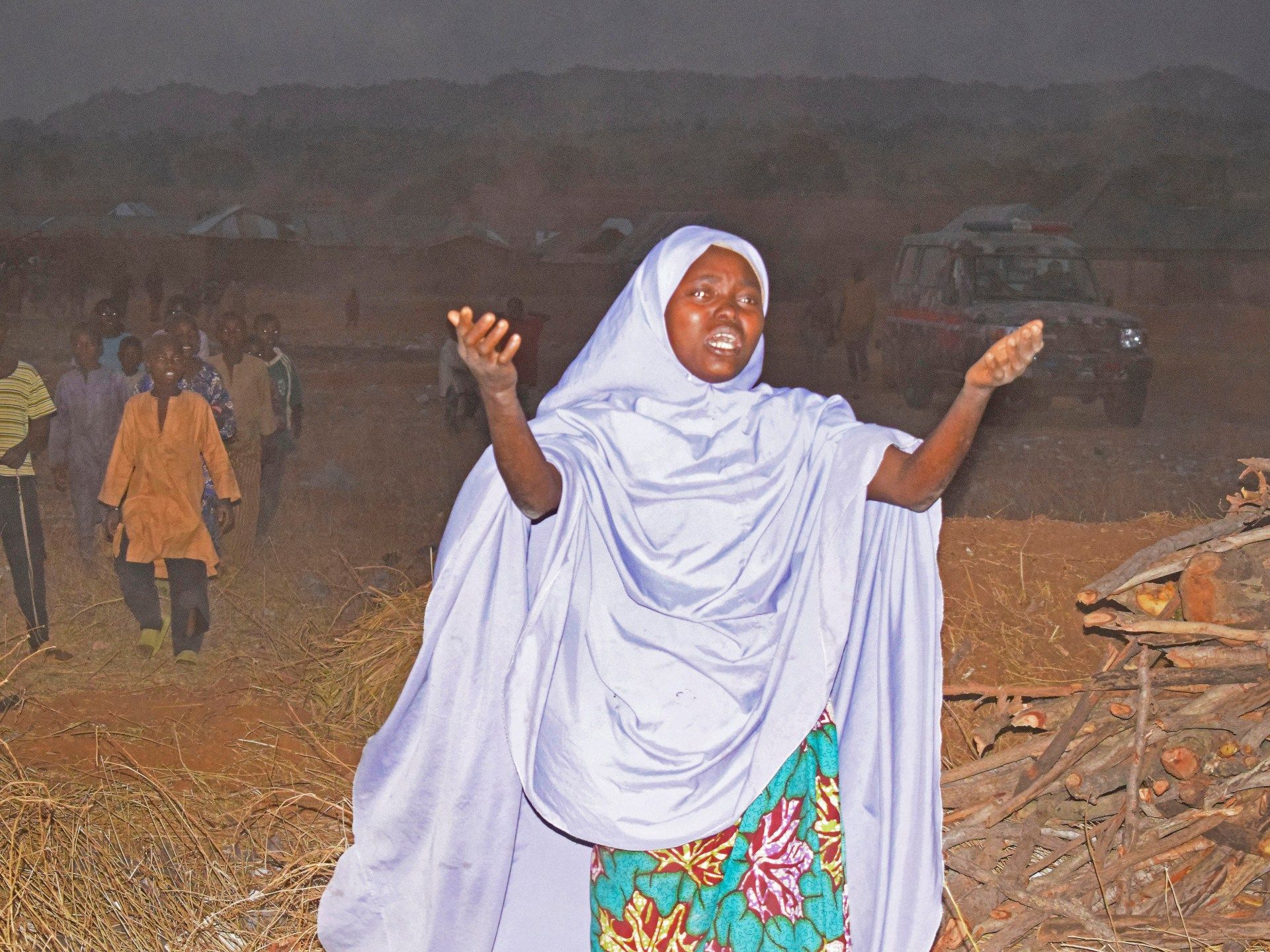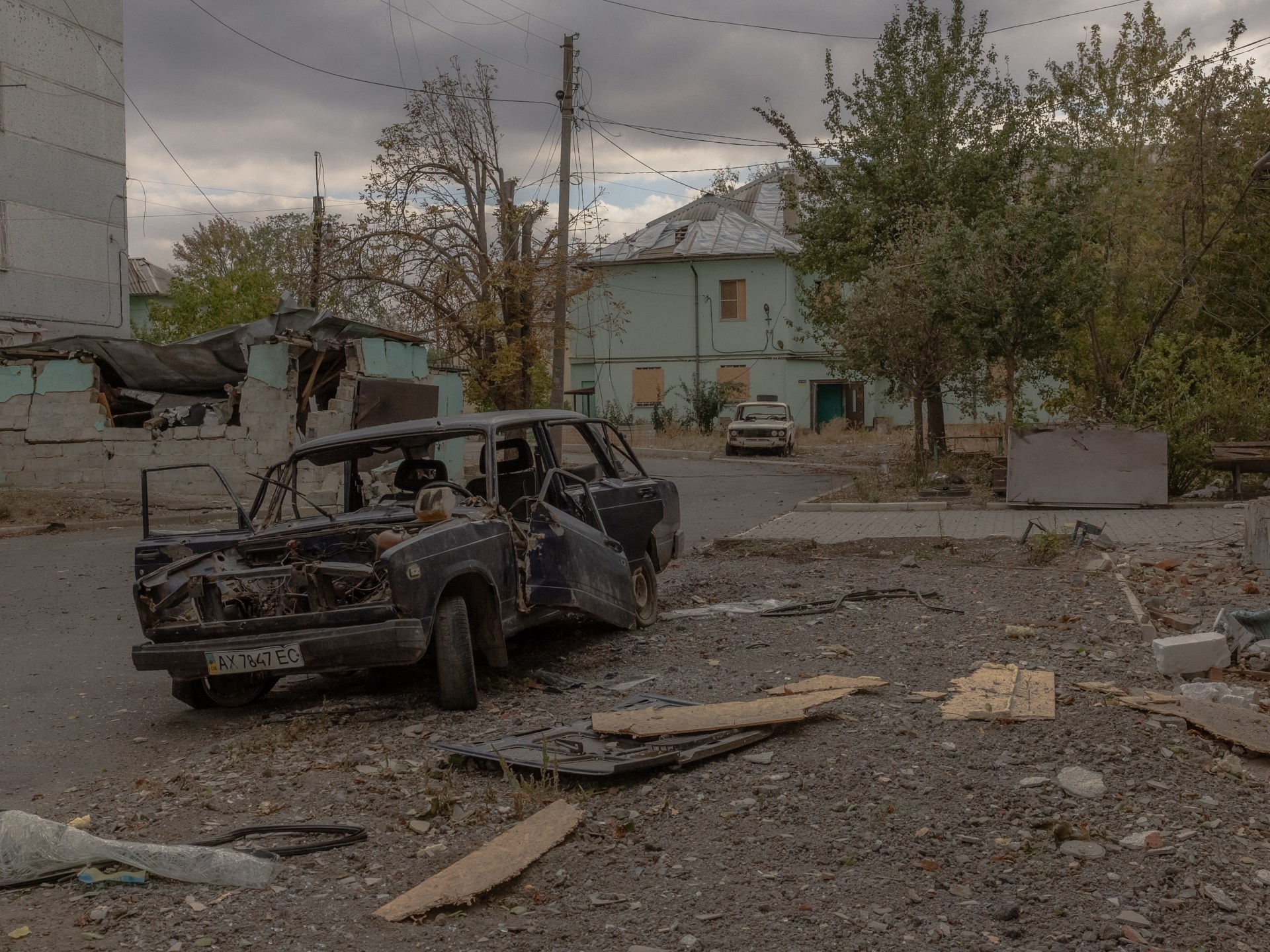A search and rescue team has been deployed to find the missing children, mostly aged between eight and 15.
At least 275 schoolchildren are missing after gunmen attacked a school in northwestern Nigeria in the second mass kidnapping in a week in the country.
Local government officials in Kaduna state confirmed the Kuriga school abductions on Thursday, but did not provide figures because they were calculating how many children had been abducted.
Al Jazeera's Fidelis Mbah reported Friday from the capital Abuja that school authorities told the state governor that around 25 of the kidnapped students had been returned to their parents, but 275 were still missing.
A search and rescue team was deployed to try to rescue the children.
Mbah said around 175 of those still missing are believed to be between eight and 15 years old.
Kidnappings for ransom are common in Africa's most populous country, where heavily armed criminal gangs have attacked schools and universities in the past, especially in the northwest, although such attacks have decreased recently.
Kuriga local councilor Idris Maiallura said he had been at the school and that the gunmen initially took away 100 primary school pupils, but later released them while others escaped.
Parents and residents blamed the kidnappings on the lack of security in the area.
Amnesty International called on the authorities to rescue the students safely and hold the perpetrators to account.
“Schools should be safe places and no child should have to choose between their education and their life,” the rights group said in X, while calling on authorities to also “take immediate steps to prevent attacks on schools.” , protect the lives of children and their right to education.”
“The government has neglected us”
“We don't know what to do, we are all waiting to see what God can do. They are the only children I have on Earth,” she told Reuters news agency Fatima Usman, whose two children were among those kidnapped, by telephone.
Another father, Hassan Abdullahi, told Reuters that local vigilantes had tried to repel the gunmen but had been overpowered.
“Seventeen of the kidnapped students are my children. I am very saddened that the government has completely neglected us in this area,” Abdullahi said.
Kidnappings for ransom by gunmen have become endemic in northern Nigeria, disrupting daily life and preventing thousands of children from attending school.
In 2014, the armed group Boko Haram kidnapped more than 200 schoolchildren in the village of Chibok, Borno state.
The last major reported abduction involving schoolchildren in Kaduna was in July 2021, when gunmen took more than 150 children in a raid. Months later they were reunited with their families after paying ransoms.
Since taking office in May, President Bola Tinubu has made reducing insecurity one of his priorities, but the military is fighting on several fronts, including a long-running battle in the northeast of the country.
Al Jazeera's Mbah said that in recent weeks Nigeria has witnessed a series of attacks and kidnappings, and the military has declared that it lacks weapons to confront and subdue armed groups.
Chris Kwaja, an associate professor at the Center for Peace and Security Studies at Modibbo Adama University in northeastern Nigeria, told Al Jazeera that the frequency of kidnappings tells an “unfortunate story of the high level of coordination, sophistication and lethality” that defines the criminal. groups organized in the country.
There is also a level of complicity within the affected communities, Kwaja said on Friday, which allows kidnappers to know how to carry out such operations.
Criminal networks can provide incentives to people within communities who do not feel supported by the government and face “hunger, starvation, poverty and unemployment,” he said.












